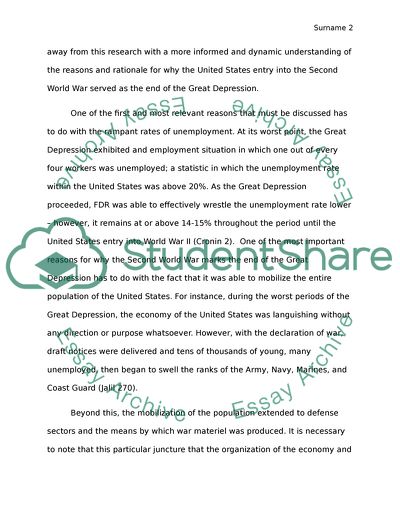Cite this document
(The Great Depression and the Second World War Report Example | Topics and Well Written Essays - 3000 words, n.d.)
The Great Depression and the Second World War Report Example | Topics and Well Written Essays - 3000 words. https://studentshare.org/history/1840650-how-wwii-helped-us-to-recover-from-the-great-depression
The Great Depression and the Second World War Report Example | Topics and Well Written Essays - 3000 words. https://studentshare.org/history/1840650-how-wwii-helped-us-to-recover-from-the-great-depression
(The Great Depression and the Second World War Report Example | Topics and Well Written Essays - 3000 Words)
The Great Depression and the Second World War Report Example | Topics and Well Written Essays - 3000 Words. https://studentshare.org/history/1840650-how-wwii-helped-us-to-recover-from-the-great-depression.
The Great Depression and the Second World War Report Example | Topics and Well Written Essays - 3000 Words. https://studentshare.org/history/1840650-how-wwii-helped-us-to-recover-from-the-great-depression.
“The Great Depression and the Second World War Report Example | Topics and Well Written Essays - 3000 Words”. https://studentshare.org/history/1840650-how-wwii-helped-us-to-recover-from-the-great-depression.


